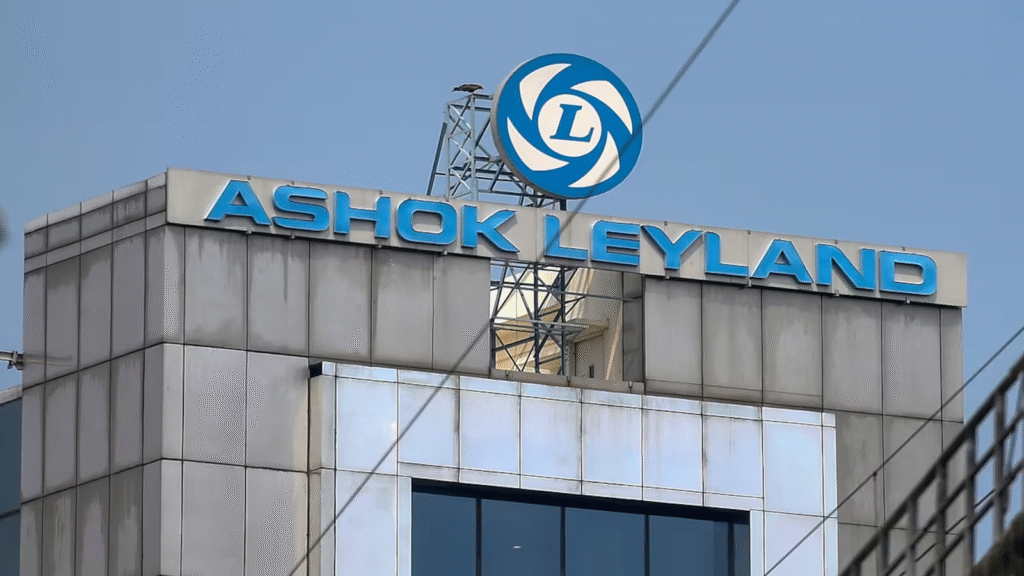
Ashok Leyland, a pioneer in India’s commercial vehicle industry and a flagship company of the Hinduja Group, is poised for a potentially transformative move. The company’s board is scheduled to convene this Friday to deliberate on the issuance of bonus shares, a decision that could significantly impact its shareholders and reverberate across the automotive and financial markets.
Bonus share issues are widely regarded as a strategic tool that companies deploy to reward shareholders, enhance liquidity, and demonstrate confidence in their future prospects. For Ashok Leyland, this step comes at a crucial time when the automotive sector is undergoing rapid transformation fueled by technological innovation, regulatory changes, and shifting market demands.
This comprehensive article explores the significance of Ashok Leyland’s potential bonus share issue, the underlying financial context, market implications, and what investors should watch out for in the coming weeks.
The Concept and Significance of Bonus Share Issues
Before delving into the specifics related to Ashok Leyland, it is important to understand what a bonus share issue entails and why it matters to investors and the broader market.
A bonus share issue is a corporate action where companies distribute additional shares to existing shareholders free of cost, in proportion to their current holdings. For example, a 1:2 bonus share issue means shareholders receive one additional share for every two shares they already own.
Unlike dividends, which provide immediate cash returns, bonus shares represent a capitalization of the company’s reserves, converting accumulated profits into equity. This process increases the number of shares outstanding but does not dilute ownership percentage, as all shareholders receive bonus shares proportionally.
From an investor’s perspective, bonus shares serve as a sign of a company’s financial health and optimism about future earnings. They also improve share liquidity, making it easier to trade on stock exchanges. Importantly, the post-issue share price usually adjusts downward to reflect the increased number of shares, keeping the overall market capitalization intact initially.
Ashok Leyland’s Financial Health and Industry Standing
Ashok Leyland has been a key player in the Indian commercial vehicle market for over seven decades. Its product portfolio spans trucks, buses, light commercial vehicles, and defense vehicles, serving both domestic and international markets.
The company has successfully weathered various economic cycles by continuously innovating and expanding its product offerings. Its commitment to research and development has led to strides in cleaner fuel technologies, electric vehicles, and smart transport solutions.
Recent quarterly results have shown steady growth, with revenues increasing thanks to rising demand from infrastructure projects, logistics, and public transport sectors. Margins have improved due to better operational efficiency and cost control measures.
Moreover, Ashok Leyland has strengthened its balance sheet by reducing debt levels and maintaining healthy cash reserves, providing the financial flexibility needed for a bonus share issue.
Why is the Board Considering a Bonus Share Issue Now?
The timing of the board meeting to discuss a bonus share issue is not coincidental. Several factors make this an opportune moment for Ashok Leyland to reward shareholders through bonus shares:
- Strong Reserves: The company has accumulated significant retained earnings and free reserves over recent quarters, which are eligible to be capitalized into share capital.
- Investor Confidence: Bonus issues often act as a vote of confidence by management, signaling that the company is on a robust growth path and capable of generating sustained profits.
- Liquidity Boost: By increasing the number of shares in circulation, bonus issues generally improve liquidity, making the stock more attractive to retail investors and institutional traders alike.
- Market Sentiment: The commercial vehicle sector is showing signs of recovery post-pandemic, with government infrastructure initiatives and increased freight movement driving demand.
- Strategic Positioning: Ashok Leyland’s investments in electric and hybrid vehicles align with industry trends towards sustainability, making it imperative to maintain investor interest and support through positive corporate actions.
Market Implications and Investor Impact
For current shareholders, a bonus share issue means an immediate increase in their equity holdings at no additional cost, effectively multiplying the number of shares they own. However, it is important to recognize that the market price will adjust to the increased share count, maintaining the overall market capitalization.
This adjustment often leads to a more affordable per-share price, attracting new investors and potentially broadening the shareholder base. Enhanced liquidity tends to reduce volatility and improve price discovery.
In Ashok Leyland’s case, investors can anticipate a boost in trading volumes and heightened interest around the announcement date and subsequent record date. Institutional investors, including mutual funds and pension funds, often view bonus issues favorably as they reinforce the company’s financial discipline.
The Broader Automotive Sector Context
The Indian automotive industry is a vital pillar of the country’s economy, contributing significantly to GDP, employment, and exports. Commercial vehicles are especially critical as they underpin logistics and transportation infrastructure.
The sector has faced multiple challenges in recent years — from regulatory upheavals such as the implementation of BS-VI emission standards to the disruption caused by the COVID-19 pandemic. However, there are clear signs of revival, driven by government spending on highways, urban transport projects, and increased industrial activity.
Ashok Leyland’s potential bonus share issue fits within this optimistic backdrop. It demonstrates the company’s ability to capitalize on the sector’s cyclical recovery and position itself strategically for the future.
Historical Perspective: Bonus Share Issues in the Indian Market
In India, bonus share issues have long been favored by companies seeking to reward shareholders without depleting cash reserves. They are a hallmark of firms with strong earnings retention and growth visibility.
Over the past decade, several automotive companies have undertaken bonus issues to maintain investor interest and enhance liquidity. For example, companies like Tata Motors and Mahindra & Mahindra have periodically rewarded shareholders in this manner.
Ashok Leyland itself has a history of prudent capital management and shareholder-friendly policies. Previous bonus issues and dividend payouts have consistently aligned with its performance and growth strategy.
Legal and Regulatory Framework Governing Bonus Shares

Issuing bonus shares in India involves strict compliance with the Companies Act, 2013, and regulations set by the Securities and Exchange Board of India (SEBI). The company must have adequate free reserves or securities premium account balances that can be capitalized.
The board’s decision to recommend a bonus issue is followed by shareholder approval at the Annual General Meeting or a specially convened Extraordinary General Meeting. Once approved, the company announces a record date, and shareholders on that date become eligible to receive bonus shares.
The shares are then credited to investors’ demat accounts, usually within a few weeks, and the stock price adjusts accordingly.
Ashok Leyland’s Strategic Vision and Future Outlook
Beyond the immediate news of the bonus share consideration, Ashok Leyland is investing heavily in future technologies. The company aims to be a leader in electric commercial vehicles, hybrid powertrains, and connected vehicle solutions.
Its vision aligns with the Indian government’s push for cleaner mobility and emission reduction. The company is also exploring global markets, expanding export footprints, and forging partnerships to stay competitive.
The bonus share issue, in this context, could be viewed as a part of a broader strategy to sustain investor faith while channeling retained earnings into growth opportunities.
Expert Commentary: What Analysts Say
Financial experts and industry analysts have been quick to comment on Ashok Leyland’s potential bonus share issue.
Rahul Mehta, a senior market analyst, notes, “Ashok Leyland’s move to issue bonus shares reflects solid fundamentals and management’s confidence in its operational roadmap. Investors should see this as a positive development, especially with the commercial vehicle sector poised for a rebound.”
Another expert, Priya Nair, points out, “While bonus shares don’t increase wealth immediately, they improve liquidity and often lead to better market perception. Ashok Leyland’s emphasis on sustainable vehicles further strengthens its case as a long-term growth stock.”
What Investors Should Watch Going Forward
For investors keen on Ashok Leyland, several key aspects warrant attention:
- Official Board Resolution: Confirmation of the bonus share issue and the exact ratio will be the primary catalyst.
- Record Date Announcement: The date by which shareholders must hold shares to qualify for the bonus shares.
- Stock Price Movements: Watch for price adjustments and trading volumes around the announcement.
- Quarterly Earnings: Continued strong financial performance will reinforce the rationale behind the bonus issue.
- Sector Trends: Monitor developments in infrastructure spending, regulatory changes, and electric vehicle adoption.
Conclusion: A Positive Signal Amid an Evolving Industry
Ashok Leyland’s forthcoming board meeting to discuss a bonus share issue is a significant event for the company and its investors. It underscores the firm’s financial robustness and growth ambitions within a rapidly evolving automotive landscape.
For shareholders, it presents an opportunity to increase their stake at no extra cost, while for the market, it signals confidence in a company ready to embrace future challenges and opportunities.
As the Indian commercial vehicle industry accelerates towards a sustainable and technology-driven future, Ashok Leyland’s strategic actions, including the potential bonus share issue, will be critical to watch.
Investors and market observers alike should stay tuned for the board’s decision this Friday, as it could well be a defining moment in Ashok Leyland’s journey.

